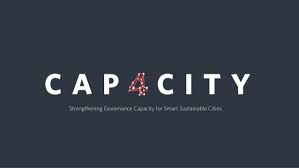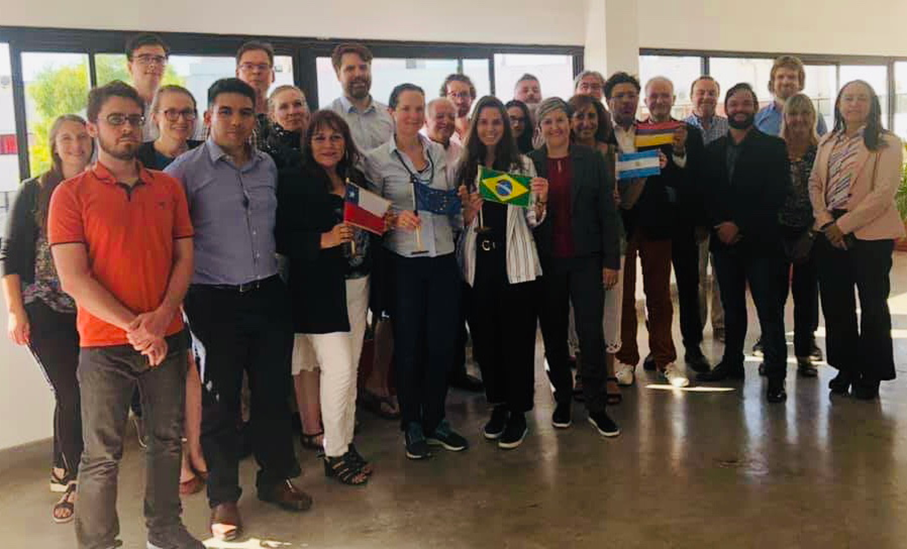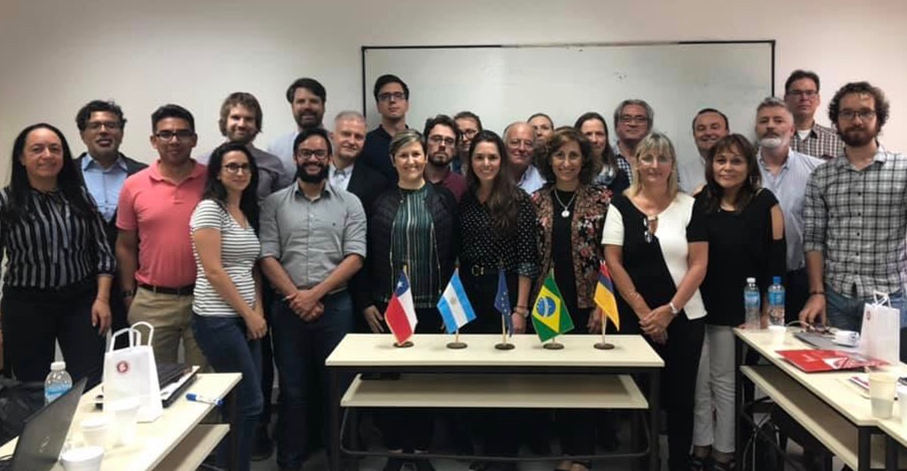TU Delft participates in international project on smart and sustainable cities
TU Delft works with 11 institutions from all over the world to understand, plan, design, implement and manage the ongoing transformations towards smart sustainable cities.

Smart Sustainable Cities (SSC) represents a progression of how cities around the world apply Information Technologies (IT) to serve their inhabitants, pursue sustainable socio-economic development, and, transform themselves in a better place to live and work. Aiming to create capacity building within academics and practitioners of SSC in Latin America, 12 universities from 7 different countries of Europe and Latin America received a fund of almost 1 million euros by ERASMUS + to develop the project Strengthening Governance Capacity for Smart Sustainable Cities (CAP4CITY).
MOOC
TU Delft leads one of the working packages and is responsible to develop and operate the Massive Online Open Course (MOOC). We are co-leaders in another working package on Dissemination and Exploitation and are in charge of communicating, disseminating and exploiting the project when finalised. Applicants will have free-of-charge access to the MOOC. The kick-off meeting took place in La Plata, Argentina, February 2019.
TU Delft coordinator, Professor Marijn Janssen: “We already have a long track record with the ‘open government’ MOOC. This project is quite challenging since we need to create a MOOC for several countries, respecting their diversity and it will be available in three different languages: English, Portuguese and Spanish”.
Interdisciplinary nature
According to Janssen developing sustainable smart cities is interdisciplinary by nature and requires combining and balancing technology and governance. Ricardo Matheus, PhD candidate at the faculty of TPM pointed: “SSC will embrace open data and data science projects using new technologies and methods such as artificial intelligence, machine learning and blockchain. It is unlikely Smart Cities initiatives succeed in the future without proper algorithm transparency and respecting citizens’ privacy. Data scientists will play an important role in the future SSC governance”.
The CAP4CITY MOOC is planned to be released in October 2020. After this first round, partners will evaluate challenges and limitations, to create an updated version of the same course, planned to be released in 2021, the 3rd and final year of the CAP4CITY project.
Prof. Janssen considers CAP4CITY an important milestone for capacity building within SSC: “Especially for developing countries facing diverse problems that might have similar solutions, bringing an immense public value for academics and practitioners following this completely free and online course”.
Dissemination and Exploitation of CAP4CITY
Project information is currently disseminated by the website and social media:
Partner institutions
The CAP4CITY consortium comprises 12 partner institutions from 8 countries (Austria, Estonia, the Netherlands, Poland, Brazil, Chile, Colombia and Argentina). They are:
- Donau Universität für Weiterbildung (DUK), Austria – Coordinators
- Tallinn University of Technology (TUT), Estonia
- Delft University of Technology (TU Delft), the Netherlands
- Gdańsk University of Technology (GUT), Poland
- Universidad Nacional del Sur (UNS), Argentina
- Universidad Nacional de La Plata (UNLP), Argentina
- Faculdade Meridional – IMED, Brazil
- Universidad Externado de Colombia (UEC), Colombia
- Escuela Colombiana de Ingeniería Julio Garavito (ECI), Colombia
- Universidad Católica del Norte (UCN), Chile
- Universidad Técnica Federico Santa María (UTFSM), Chile
- Pontifícia Universidade Católica do Rio Grande do Sul (PUCRS), Brazil

